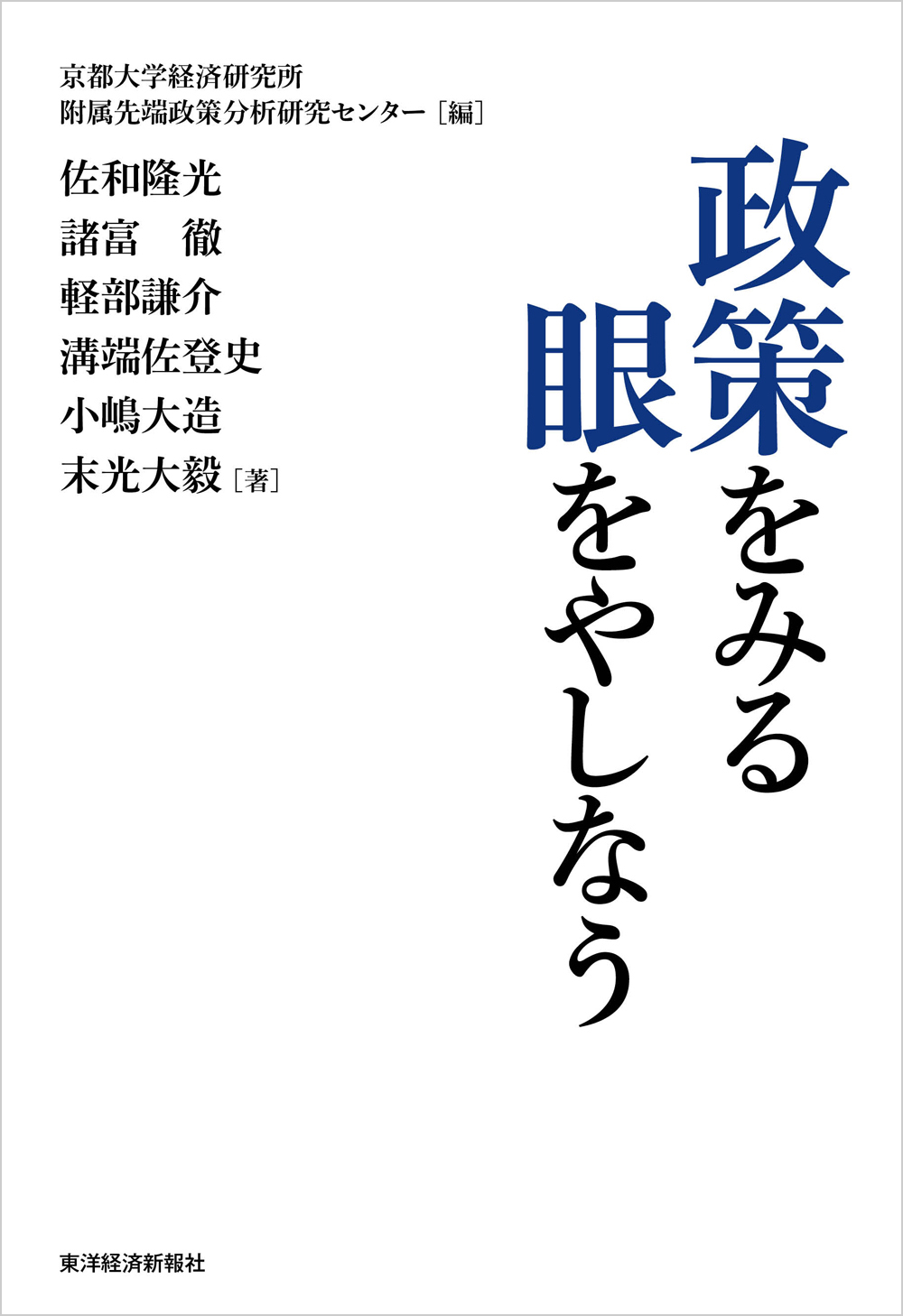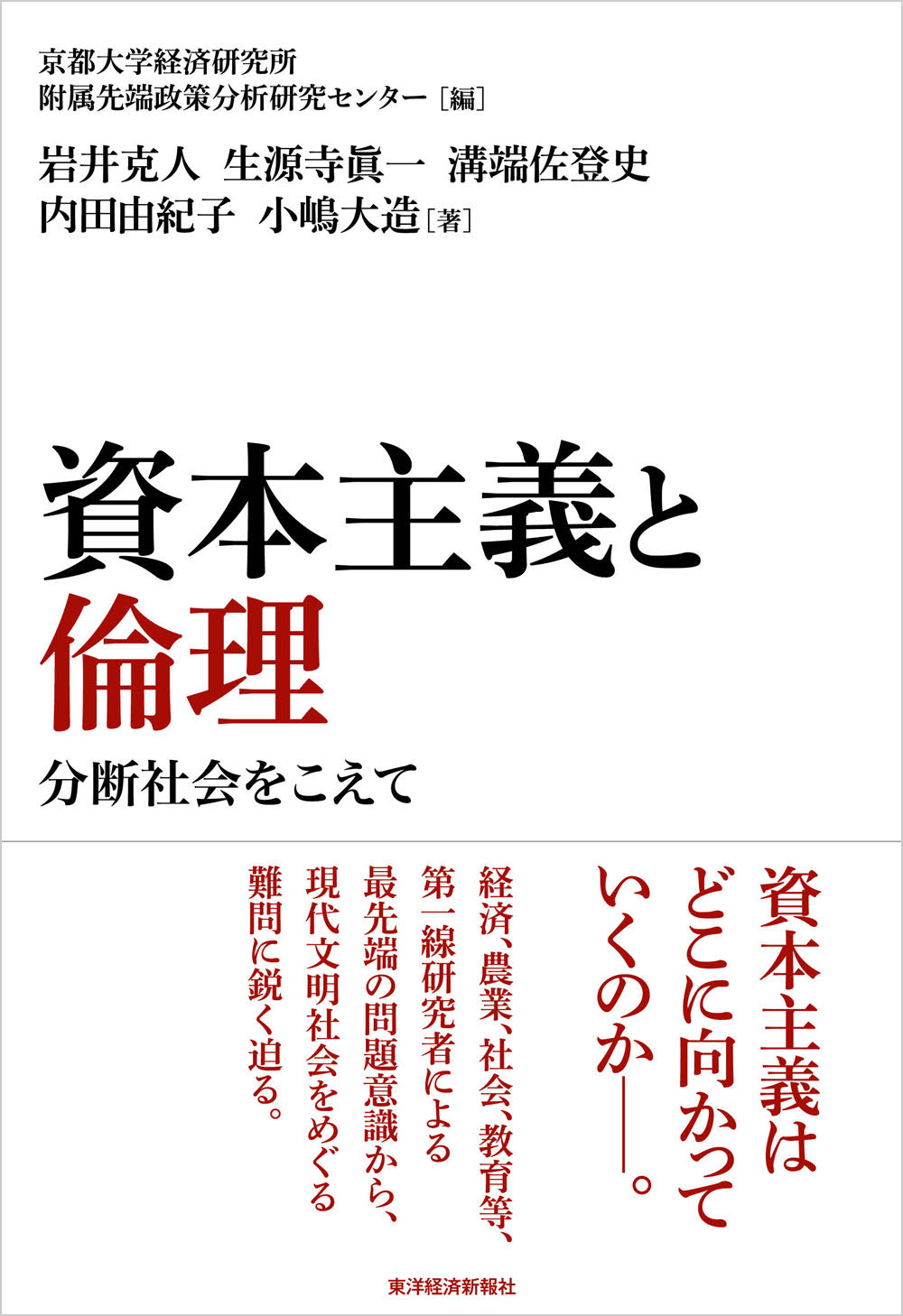
Title
Seisaku o Miru me o Yashinau (Cultivate the ability to look at policies)
Size
208 pages, 127x188mm, hardcover
Language
Japanese
Released
August 23, 2019
ISBN
9784492961674
Published by
Toyo Keizai Inc.
Book Info
See Book Availability at Library
Japanese Page
This book is a record of the symposium “Seisaku o miru me o yashinau [Cultivate the ability to look at policies]” (hosted by the Institute of Economic Research, Kyoto University) held in March, 2019. The book consists of lectures in Part I and a panel discussion in Part II. The aim of this symposium was to “think about the bases for looking at policies and how modern policies can be perceived from those bases” (from the "Introduction" by Professor Satoshi Mizobata). At this symposium, not only academia but also the media covering policies and officials in active service were invited for discussions. I explain this book by introducing the speakers’ recent books and papers.
The first speaker, Mr. Kensuke Karube (Jiji Press), describes how atypical economic policies were created by gathering facts in Kanryo tachi no Abenomikusu [Abenomics of bureaucrats]" (Iwanami Shoten, 2018). In the final chapter, after drawing the facts, he presents the problem as follows: Who will suppress the emergence of an "unopposed" government under the modern Japanese parliamentary system?; and how can policies such as Abenomics be brought to “a court” that carries out checks and balances? His questions serve as a basic standpoint to look at policies.
The second speaker, Professor Toru Morotomi, is the author of "Zaisei kinyuu seisaku no koukyousei to zaisei minsyu syugi [Publicness of fiscal and monetary policy and fiscal democracy]" (an article printed in Shisō, April 2019 issue, Iwanami Shoten). He shares the same problem awareness with Mr. Karube and examines the Bank of Japan's quantitative easing policy based on the basic principles of public finance. He points out that quantitative easing policies, which may have a retrograde effect on income distribution, are tied to the administration's personnel and goal setting without being validated through parliamentary debate and argues that this is not a simple financial issue but a problem of fiscal democracy itself. The lecture in this book (Cultivate the ability to look at policies) talks about the essence of such discussion.
The third speaker, Professor Takamitsu Sawa, discusses how to adapt to the changes that the Fourth Industrial Revolution will bring from a broader perspective. In his serialization "Dai yon ji sangyou kakumei to wa nani ka [What is the Fourth Industrial Revolution]" in the PR magazine of DIAMOND, Inc. Kei, he takes a bird's-eye view of modern society while looking back in history. The fascinating topics he discusses include the merits and demerits brought by the Industrial Revolution, lessons from Thomas More and Keynes, and a modern theme of how much of human professions AI will take away.
I emphasize, here, that the aim of this book is to cause us to think about our bases for looking at policies and how modern policies can be perceived from those bases. This book would have clear implications for these topics. If you are interested, I also recommend books and articles by the speakers introduced above.
(Written by KOJIMA Daizo, Associate Professor, Graduate School of Agricultural and Life Sciences / 2020)



 Find a book
Find a book


 eBook
eBook